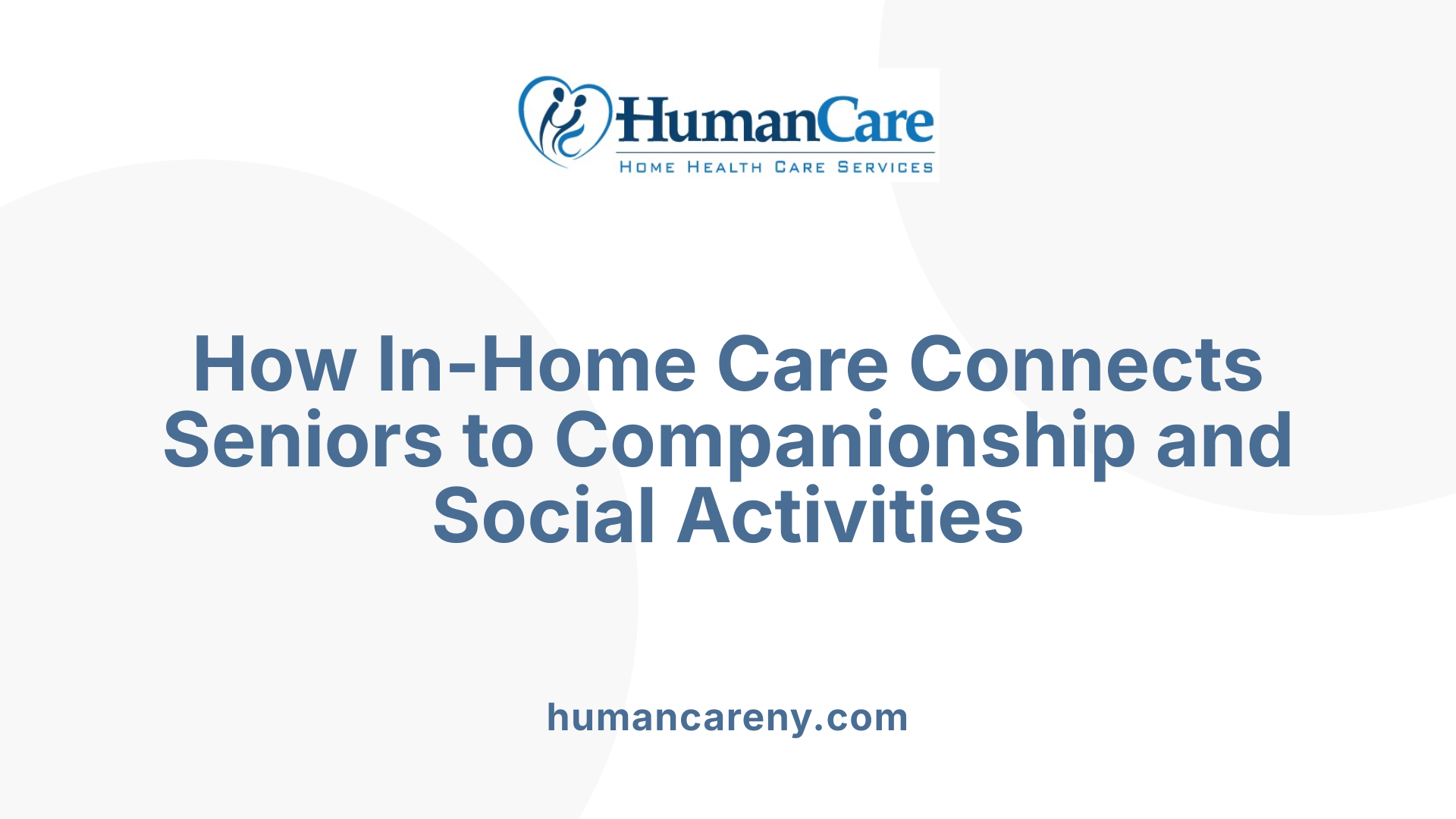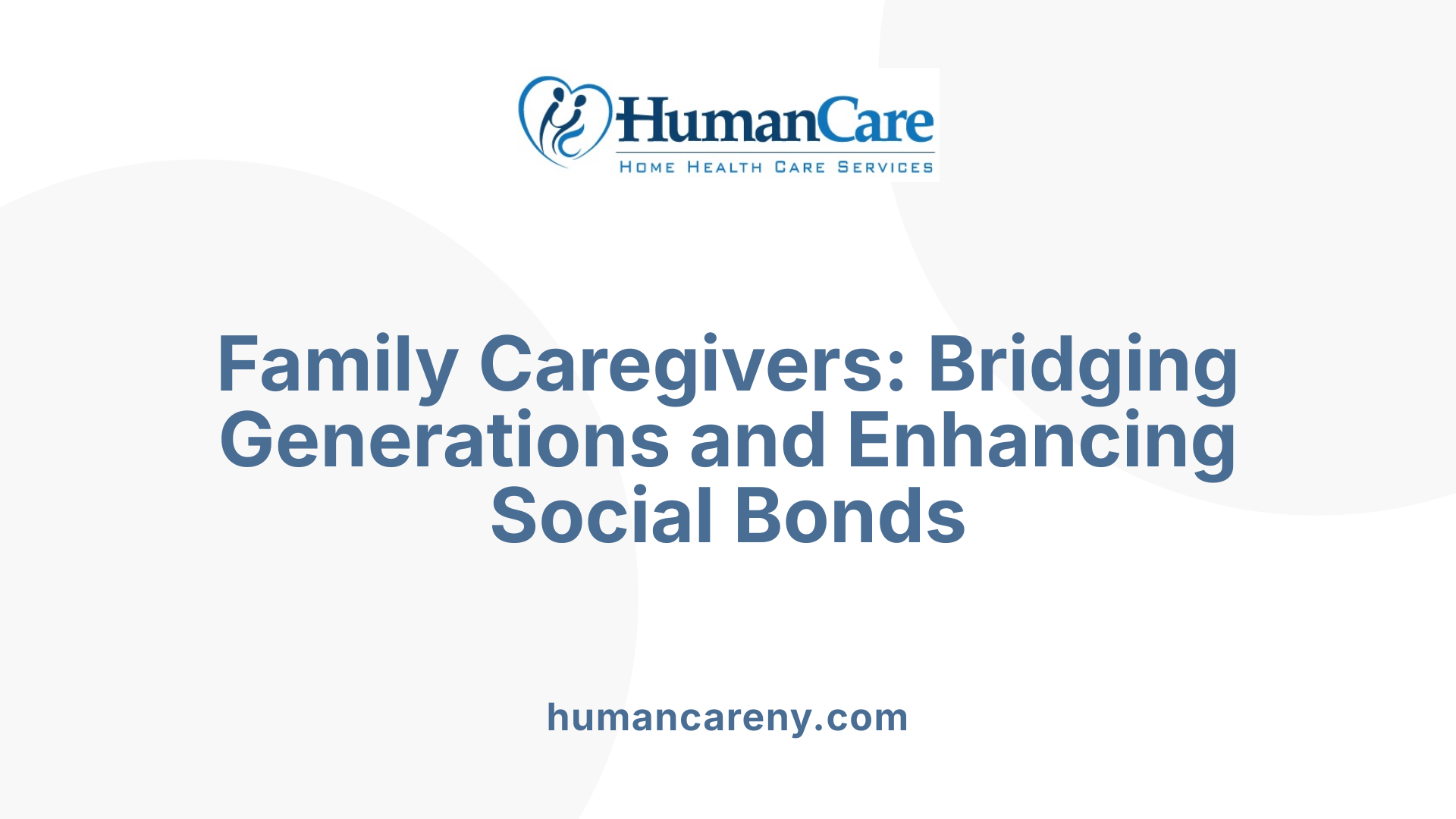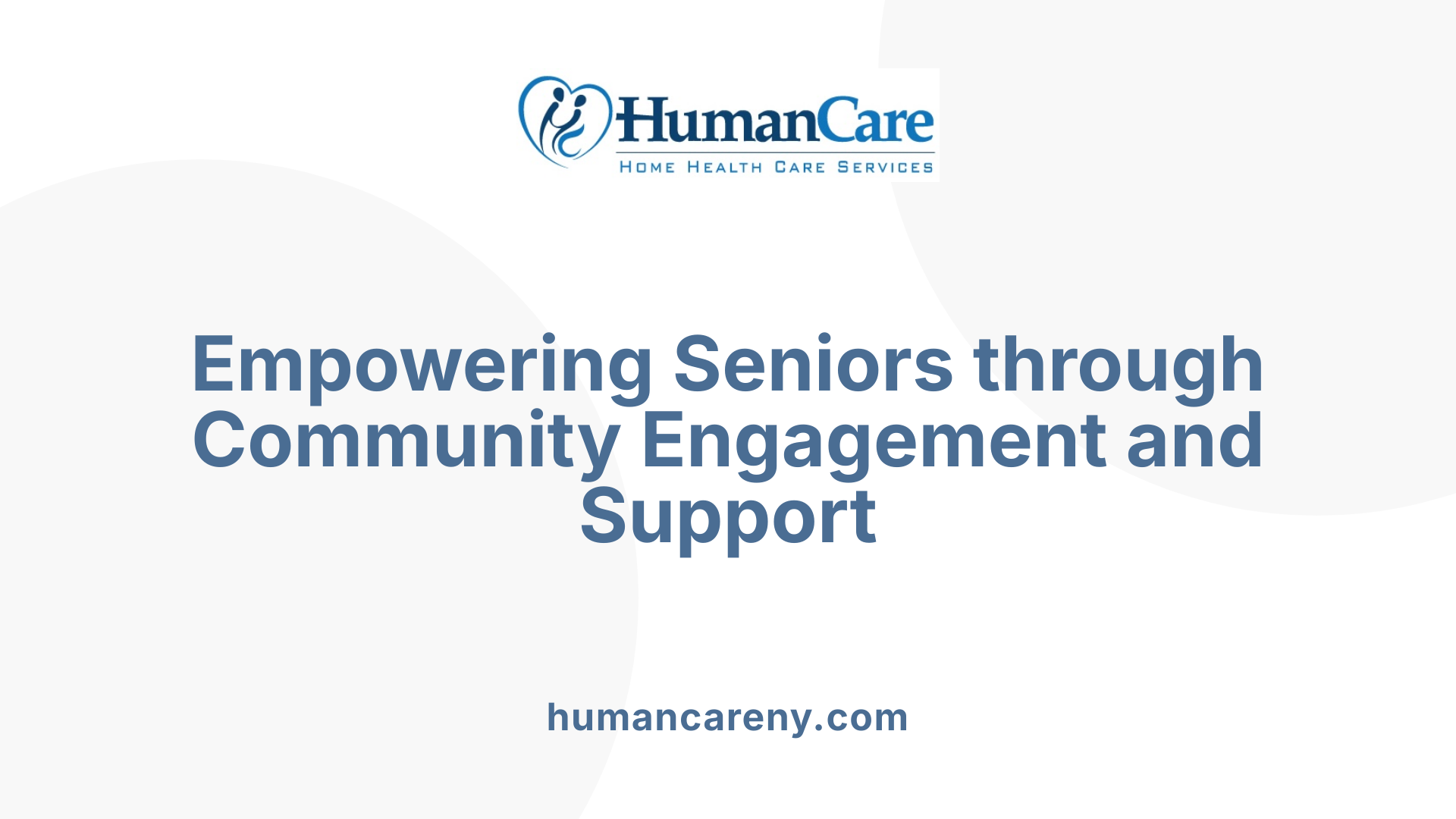Embracing Social Connection Through Home Care
Social engagement is a cornerstone of senior well-being, profoundly impacting mental, emotional, and physical health. Adult home care plays a vital role in nurturing these connections by providing personalized, compassionate support that caters to seniors’ unique social and emotional needs. This article explores how in-home care services actively promote social interaction, enhance quality of life, and contribute to holistic health for older adults.
The Health Benefits of Social Engagement for Seniors

Physical health advantages of social activity
Social engagement encourages seniors to participate in physical activities such as walking, yoga, or group exercise classes. These activities help reduce the risk of chronic diseases, improve mobility, and promote cardiovascular health by lowering blood pressure and encouraging better physical movement. Active social lives thus contribute significantly to maintaining seniors' overall physical health.
Mental and cognitive improvements
Regular social interaction provides important mental exercise. Conversations, group activities, and engaging with others stimulate the brain, strengthening neural connections and supporting cognitive function. This kind of stimulation has been shown to reduce risks of dementia and Alzheimer’s disease among older adults, helping preserve mental sharpness in aging populations.
Emotional well-being and its connection to socialization
Social bonds offer emotional support and foster a sense of belonging, purpose, and self-esteem. Engaging socially helps reduce feelings of loneliness, depression, and anxiety, promoting emotional resilience. Seniors who maintain social connections tend to experience higher life satisfaction and improved mental health, which altogether contribute to a better quality of life.
Why is socialization important for seniors' health?
Socialization in seniors is linked to numerous benefits including maintaining physical health, supporting cognitive function, and improving mental well-being. Engaging socially stimulates the brain, strengthens neural connections, reduces risks of dementia and Alzheimer’s, and enhances emotional resilience, which supports healthy aging.
How In-Home Companion Care Bridges Socialization Gaps

Role of professional caregivers in fostering companionship
Professional in-home companion caregivers play an essential role in bridging socialization gaps for seniors. They provide companionship tailored to each individual’s needs, building meaningful relationships that promote mental and emotional health. By engaging seniors in conversations, sharing stories, and participating in activities together, caregivers foster trust and social bonds that help combat loneliness and social isolation.
Personalized care plans including social activities
Agencies offering in-home companion care, such as Dakota Home Care, develop personalized care plans that include social activities suited to seniors' unique interests and abilities. These social engagements may involve attending local community events, gentle group exercises like yoga or walking clubs, or virtual social opportunities such as video calls to stay connected with loved ones when in-person interaction is not feasible. This tailored approach ensures seniors remain active, socially engaged, and mentally stimulated.
Emotional and mental health support provided by caregivers
Companion caregivers offer vital emotional and mental health support by ensuring seniors feel valued and engaged. Their presence fosters a sense of belonging and reduces feelings of loneliness, anxiety, and depression. Beyond social interaction, caregivers assist with daily activities and medication reminders, contributing to holistic well-being. Their support not only enhances seniors’ quality of life but also provides peace of mind to family members, relieving caregiver burdens.
How do professional in-home caregivers support social engagement?
Professional in-home companion caregivers develop personalized care plans that include social activities tailored to seniors' interests and abilities. They build meaningful relationships through conversations, shared stories, and participation in activities, fostering trust and emotional well-being. This companionship addresses social isolation and supports seniors' independence.
Family Caregivers as Facilitators of Social Connection

What role do family caregivers play in promoting socialization?
Family caregivers are essential in helping seniors maintain and enhance their social connections. They organize group activities tailored to the interests and abilities of the seniors, creating opportunities for meaningful engagement and social interaction. This helps to combat loneliness and supports emotional well-being.
How do family caregivers encourage intergenerational programs and technology use?
Family members promote intergenerational programs that foster interactions between seniors and younger generations. These connections enhance social wellness, provide a sense of purpose, and nurture empathy across ages. Caregivers also help seniors use technology such as video calls and social media platforms, which are vital tools for staying connected with family and friends who may live far away, ensuring continuous social engagement.
In what ways do caregivers support social engagement through caregiving?
Beyond organizing activities and promoting technology, family caregivers provide hands-on support that encourages seniors to participate in social and physical activities, such as walking groups or community events. This involvement not only bolsters mental health but also promotes physical well-being. By being actively engaged, caregivers reduce the risk of social isolation and foster a supportive environment where seniors feel valued and connected.
Physical Activity and Social Interaction in Adult Home Care

How does adult home care encourage physical activity through social engagement?
Adult home care services foster physical activity by encouraging seniors to participate in group activities like walking clubs and yoga classes. Companion caregivers play an essential role by supporting seniors' involvement in these exercises, which not only promote physical movement but also offer social engagement opportunities.
These group activities help improve seniors' mobility, breathing, flexibility, and cardiovascular health. By integrating physical exercise with social interaction, caregivers reduce sedentary behavior and contribute significantly to lowering the risk of chronic diseases common in older adults.
The social aspect of these activities helps seniors stay motivated and committed to regular exercise, which is vital for maintaining independence and overall health.
Physical health improvements from social activities
Social engagement that includes physical activity offers numerous health benefits. Regular participation in group exercises can enhance strength, balance, and flexibility, reducing the chances of falls and injuries.
Moreover, movement combined with social connection positively impacts heart health by lowering blood pressure and improving circulation. This synergy supports healthier aging by keeping both body and mind active.
Connection between social engagement and reduced chronic disease risk
Engaging in social activities that promote physical movement effectively decreases the risk of developing chronic conditions such as cardiovascular diseases and diabetes. Social involvement keeps seniors mentally stimulated and physically active, which strengthens the immune system and improves overall resilience.
By encouraging group exercises and social participation, adult home care helps seniors maintain a healthier lifestyle, enhancing their quality of life and longevity.
Technology: Expanding Social Opportunities for Seniors at Home
How does technology facilitate social engagement for seniors receiving home care?
Technology plays an essential role in helping seniors maintain social connections, especially when physical mobility or geographic distance limits face-to-face interaction. Tools like video calls and social media platforms allow seniors to communicate easily with family and friends, bringing a sense of closeness even when apart.
In-home caregivers encourage the use of these virtual socializing options as part of personalized care plans. They assist seniors in accessing online communities, support groups, and interest-based forums that provide meaningful engagement and emotional support.
By integrating technology into daily routines, seniors can participate in a broader social network, which helps combat loneliness and reduces the risk of mental health challenges such as depression and anxiety.
Additionally, virtual interaction complements physical activities and community events by providing continuous social stimulation on days when in-person meetings are not possible. This multidimensional approach helps sustain cognitive function and emotional well-being.
Through embracing technology, home care services create new avenues for social participation, ensuring seniors feel connected, valued, and engaged within their social circles regardless of physical barriers.
Community Integration and the Role of Senior Home Care Agencies

How do senior home care agencies support community engagement?
Senior home care agencies play a crucial role in enhancing social connection for seniors by actively promoting community involvement. They encourage seniors to participate in local events, providing tools such as Community Events Calendars that highlight opportunities for socialization and engagement within the community.
These agencies tailor care plans to include social activities aligned with each senior's interests and capabilities, fostering a meaningful connection to community life. By organizing transportation services, they help overcome mobility barriers that might otherwise prevent participation in social gatherings.
Inclusive programming is another focus, ensuring that social activities welcome seniors of diverse backgrounds and abilities. This approach cultivates a supportive environment where seniors feel valued and motivated to engage socially.
Collectively, these efforts by senior home care providers support emotional well-being and a sense of belonging, helping seniors maintain an active social life, which is vital for mental and physical health.
Fostering Connection for a Healthier, Happier Life
Adult home care is a vital lifeline that champions social engagement for seniors, significantly enhancing their mental, emotional, and physical well-being. Through the compassionate efforts of professional caregivers, the involvement of family, the embrace of technology, and strong community integration, seniors receive holistic support that combats isolation and promotes active, fulfilling lives. As social connection remains central to quality of life in later years, adult home care services continue to transform the senior experience by making meaningful engagement accessible within the comfort and familiarity of home.



